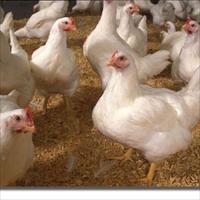NIGERIA: People compete with chickens for food

“The [poultry] farmers are competing for grains against
other consumers,” said Shehu Bawa, a veterinarian who consults for the UN
children’s agency (UNICEF). For poultry farmers, “It’s a survival issue because
if they do not feed their birds they will die and their businesses will
crumble”.
As a result, grain traders say they are struggling to meet
the demand for grains. “The demand is so high that we are trying to lay our
hands on grains from anywhere we can,” the head of the grains merchants
association in Kano’s Dawanau market, the
largest grains market in West Africa, Muhammad
Abdullahi Koya, told IRIN.
In normal years, grain from northern Nigeria is often exported to neighbouring
countries, particularly nearby Niger,
but traders say the reverse has been the case since September 2007.
“Food exports to neighbouring countries have slowed,” Koya
said. “On the contrary, our merchants cross into Niger to buy grains from farmers
because it is cheaper there,” he said.
He said that purchasing in Niger is cheaper because farmers
there are in desperate need of cash. “[Nigerian grains merchants] take
advantage of the cash squeeze,” Koya said.
Meanwhile humans and chickens make demand in northern Nigeria higher.
Chicken feed generally consists of 32 percent maize, and 20 percent groundnut
and soya cakes 20 percent, both of which are also eaten by humans.
Poultry farmers are also competing with each other for
grain, Koya said. “The farmers have outdone each other in purchasing grains,
particularly maize in the last two months,” although he said poor crop yields
were the main reason for high food prices.
“Poultry farmers’ demand even at full capacity has never
been a factor in determining food prices,” he said.
Whatever the reasons, consumers are suffering. A worker
in Kano, Adamu
Usman, told IRIN that the current cost of grain is “unbelievable”. “In just a
few months, prices have more than doubled,” he said. “It is becoming more and
more difficult for me to feed my seven children as well as my wife and I.”
He said that maize is a staple for his family and they
would normally go through a 50kg bag each month. “But this month I can only
afford to buy half a bag because now it costs 5,400 Naira (US$47) a bag which
is too much for me to deduct from my 10,000 Naira a month salary.”
Both people and chickens also consume groundnut cake
which has risen from $119 a tonne to $305 in the last six months, Auwalu
Haruna, spokesman for Kano Poultry Farmers Association told IRIN. Even the
price of wheat offal, which is not consumed by humans, has jumped from $6 six
months ago to $17 today, he said.
Price hikes increase demand
Contrary to normal economic logic, the high grain costs
may increase rather than decrease demand for grain as well as decrease demand
for poultry, said Bawa of UNICEF. “[With lower purchasing power] consumers use
the money they would normally use for buying eggs and chicken to purchase
grains which is more important to them.”
Thus poultry farmers are suffering doubly with high cost
of inputs and low sales, he said.
In the last year many farmers have finally replenish the
hundreds of thousands of chickens culled because of avian influenza outbreaks
over the last two years. Now, with feed so expensive, the farmers are
struggling to keep their chickens alive.
 Back and Next - Back and Next
Back and Next - Back and Next See Also - See Also
See Also - See Also